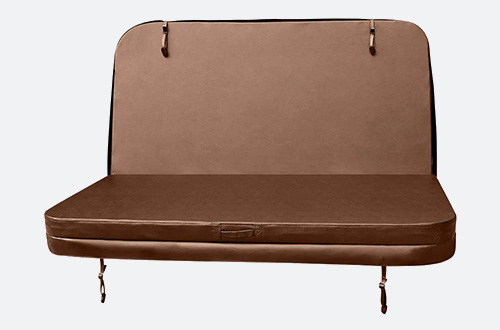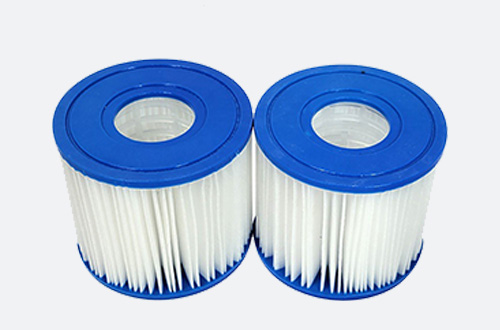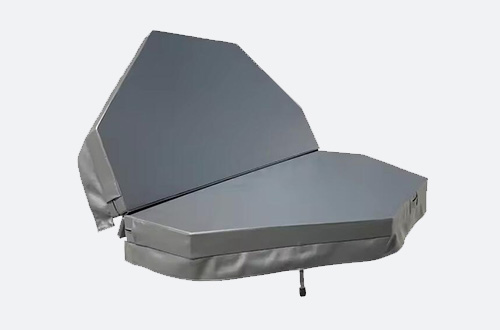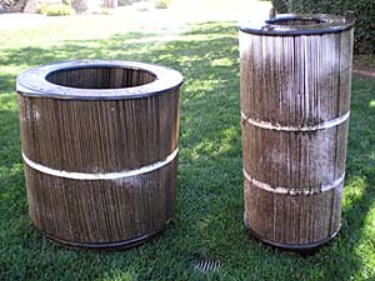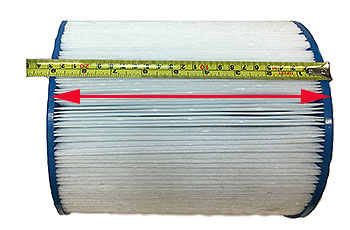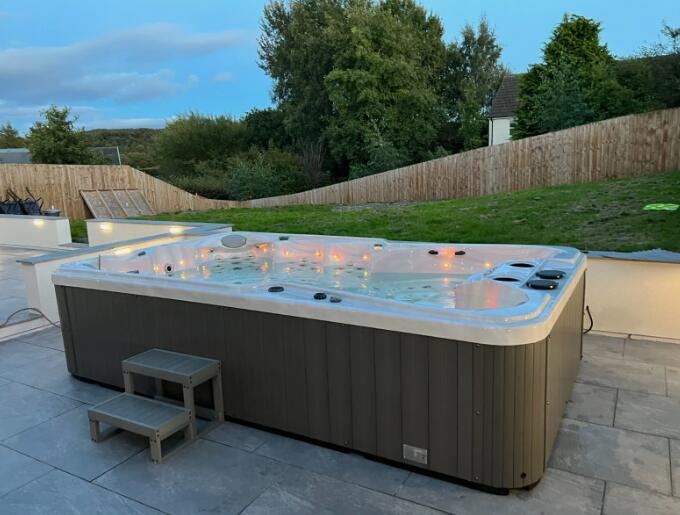How do I find the right size filter for my spa?
How do I find the right size filter for my spa?
If you need a new hot tub filter, it can be a bit challenging to find the one that fits your hot tub as there are over 300 different sizes available.
Hot tub filter part number
Some filter sizes actually have the model number right on it, which will make your job quite a bit easier. Check both ends of your filter, and if you have a number on it that looks similar to this, that’s your filter model number. Just search for that number on our website and you’ll find compatible filters.
Measurements
If there’s nothing printed on your filter, you will need to pull out a measuring tape or a ruler. You’ll need to gather a few measurements from your current filter, and try to be as accurate as possible. Do not include any handles, tapers, pinholes, or slots in your measurements.
Hot tub Filter Size
Length
Measure from outside of end cap to outside of end cap (this is the hard plastic end of the filter). Do not include handles, thread at the bottom or any other parts other then just as shown in the image on the left.
Spa filter size
Filter Width
Measure from one side to the other side of the top of the filter as shown in the image
Your filter may have an opening on one or both ends. Measure the diameter of the hole between the 2 widest points.
Types of Openings
There are three different types of openings available and only one will work with your spa, so it’s very important to find the correct one.
Open Hole
The hole is flush with the end cap and doesn’t have anything protruding from it.
Slotted
These openings are similar to open holes but they have extra slots carved out, making an imperfect circle. Measure between the two widest points.
Threaded
There are two kinds of threaded filters that could be on your filter. You could have an MPT fine thread with about 6-10 ridges, or an SAE thicker thread with about 2-3 ridges. Filters can also be threaded with male threads on the outside or female on the inside. See below for more information on threaded openings.
Determining Thread Size
If you have identified that you have a threaded opening (male or female), you will need to find the thread size.
Nominal versus Actual Measurements
For both male and female thread types, thread sizes are identified by nominal pipe thread sizes and not exact diameter measurements. Therefore, it is important to note that sometimes your measurement of the diameter will be slightly different than what is listed in the filter’s description, which is quite normal. Here are a few examples of nominal versus actual diameter measurements with some common filters:
Filter
Nominal Thread Size
Actual Measurements
PWW50P3
1 1/2”
1 5/8”
PWW50L
2”
1 3/4"
PJW60TL-OT-F2S
2”
2 3/8”
Male Thread Sizes
PICTURE OF FINE THREAD MEASURING POINTS AND COARSE THREAD MEASURING POINTS
For male thread sizes you will need to measure the outside diameter of the opening, including the threads
Female Thread Sizes
PICTURE OF FEMALE THREAD MEASURING POINTS
For female thread sizes you will need to measure the inside diameter of the opening, not including the threads.
Square Footage
Some filters are also available in different square footage options; both will be compatible with your spa. The difference between them is how many square feet of pleats are in your filter. A filter with 50 square feet will do a better job of cleaning your water, but a filter with 25 square feet will have the pleats spaced further apart and thus be easier to clean.
Reading a Tape Measure
Tape measures will frequently have a side for centimeters and a side for inches. When measuring a filter, you will need to use inches.
The longest lines on the tape measure indicates measurements in increments of inches. The space between one of the longest lines to the next longest line is 1 inch.
The line that indicates one-half inch will be the second longest line. The space between the longest line and this second longest line is half an inch.
The third longest line indicates 1/4”, the one slightly shorter than that indicates 1/8”, and the smallest lines are 1/16”.
When measuring for your filter, you’ll need to be as exact as possible, down to the 1/16”. When looking at filter listings, you’ll also find it’s usual to give the lowest common denominator a filter: for exampled 10/16” is listed as 5/8”.
